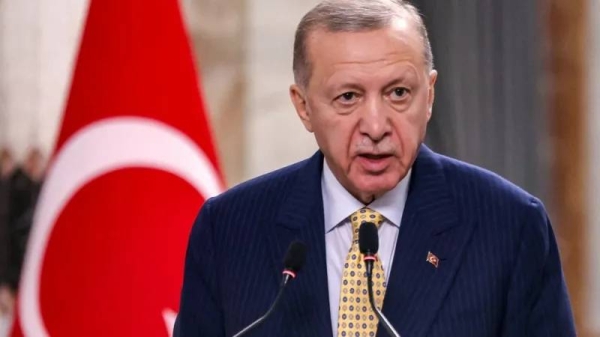Turkey has suspended all trade with Israel in response to the “worsening humanitarian tragedy” in Gaza. The Turkish trade ministry stated that the suspension would remain in place until Israel allowed an “uninterrupted and sufficient flow” of aid into the strip. This decision comes after relations between the two countries have worsened over the years, with Turkey breaking off diplomatic ties with Israel in 2010 after a deadly clash involving pro-Palestinian activists and Israeli commandos. While relations were restored in 2016, they soured again in 2018 after both countries expelled each other’s top diplomats over Israel’s actions in Gaza.
Israel’s foreign minister accused Turkish President Recep Tayyip Erdogan of acting like a “dictator” for implementing the trade suspension. He stated that Erdogan was disregarding the interests of the Turkish people and ignoring international trade agreements. In response, Israel has instructed its foreign ministry to find alternative trade routes, focusing on local production and imports from other countries. This suspension of trade covers all products and will be strictly enforced until Israel allows the flow of humanitarian aid into Gaza.
The situation in Gaza has been deteriorating, with a UN-backed report stating that 1.1 million people are facing catastrophic hunger and that famine is imminent in northern Gaza by May. Israel has been under increasing criticism for the conditions in Gaza, with accusations of using starvation as a weapon of war in the strip. However, Israel denies limiting aid deliveries and blames the UN for failing to distribute aid to those in need inside Gaza. The US has stepped in to facilitate aid delivery by building a pier to ease the flow of supplies into the territory.
The US is urging Israel and Hamas to come to a ceasefire agreement to free the remaining hostages in Gaza. US Secretary of State Antony Blinken stated that a deal is on the table and Hamas should agree to it. The proposed deal reportedly involves a 40-day ceasefire and the release of more than 30 Israeli hostages in exchange for many more Palestinian prisoners. Mediators are waiting for a response from Hamas to this proposal. The ongoing conflict in Gaza has resulted in many casualties and has heightened tensions between Israel and Turkey, leading to the suspension of trade between the two countries.
In response to the suspension of trade by Turkey, Israel is exploring alternative routes for trade with a focus on local production and imports from other countries. The diplomatic relations between Turkey and Israel have been strained in recent years, with both countries expelling each other’s diplomats over disagreements related to Israel’s actions in Gaza. The worsening humanitarian situation in Gaza, with reports of catastrophic hunger and imminent famine, has garnered international attention and calls for a ceasefire between Israel and Hamas to free the remaining hostages in Gaza. The US has intervened by building a pier to facilitate aid delivery, but challenges remain in ensuring the timely distribution of aid to those in need in Gaza.
As tensions escalate in Gaza, with accusations of using starvation as a weapon of war and ongoing clashes between Israel and Hamas, the international community is calling for a ceasefire to end the violence and release the remaining hostages in Gaza. The proposed deal, which involves a 40-day ceasefire and the release of hostages on both sides, is seen as a potential step towards de-escalating the conflict. Mediators are awaiting a response from Hamas to this proposal, as efforts continue to address the humanitarian crisis in Gaza and restore stability in the region. The suspension of trade between Turkey and Israel is a reflection of the growing international pressure on Israel to allow the flow of humanitarian aid into Gaza and address the worsening situation in the strip.










